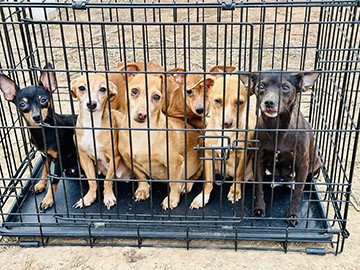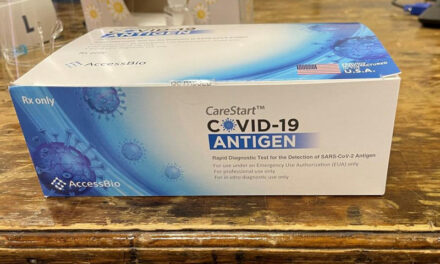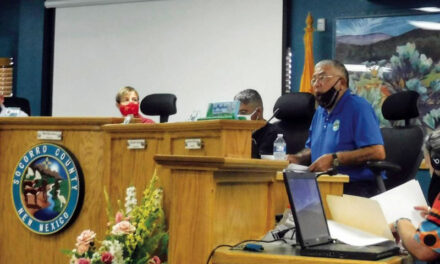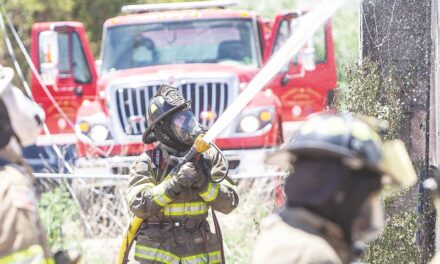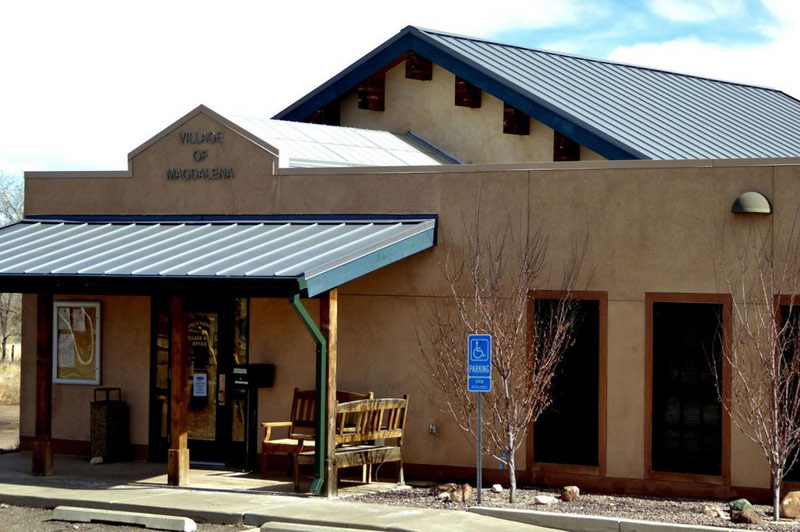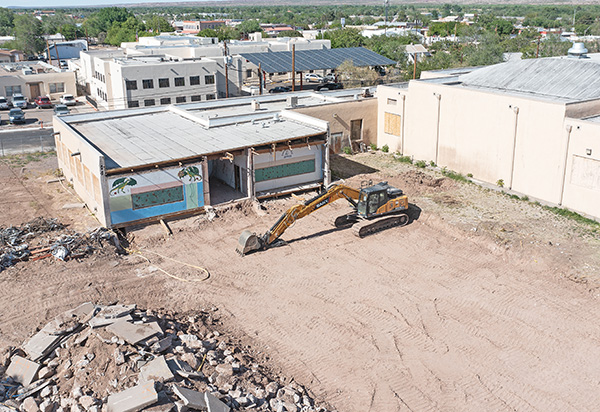Eleven days after the East Mountain Companion Animal Project took 61 of the 114 chihuahuas relinquished by their Veguita owners, 33 new puppies have been born with six more expected to deliver soon.
One mother and a puppy have passed away due to complications; the need for financial donations keeps increasing as they discover more health issues.
“Our biggest concern right now is the financial aspect of it. We are fundraising to cover everything,” Chelsea Worley of EMCAP said. “We have received some donations and support to cover medical expenses, but not nearly what we’re spending.”
She said blood tests have found the chihuahuas to be malnourished, with low blood cell counts and anemia. Most will need medical nail trims and dental procedures. Due to their health problems, many will not be available for adoption nor can be fostered for months because they need to be close to veterinary care.
“I mean, we were just trying to get them off the property as fast as possible. But now we’ve had time to do some exams, and all of their labs are just really awful,” Worley said.
EMCAP took 20 of the females who were either pregnant or nursing, and because the dogs were all in one room, they had no idea which puppies go with which mother. They did their best to put them together, but their health issues compounded the situation.
Worley said some of the pregnant dogs were so small, malnourished and old it caused complications. So far, they have only had to do one c-section, which cost about $2,000.
She said normally they can estimate a dog’s age by the tartar on their teeth, but because of the malnutrition, it’s hard to tell. The white on their faces indicate that some of the pregnant chihuahuas are 10 to 15 years old; many with no teeth at all, which is considered high risk for complications.
Worley was one of the rescuers on the property who went inside and said it was one of the worst cases she had seen so far of having so many animals in a small space.
“You could tell that the floors were rotting, and I’m really surprised that dogs weren’t like falling through the floorboards,” Worley said. “When you open that door, it was disgusting; it was just such a strong urine smell. I think that’s partially why the floor was in such bad shape. They’ve just been urinating in there over and over and over and over. But one room was closed off and it was full of all the pregnant dogs. We had to get underneath junk and things to pull babies out.”
Worley noticed sheds on the property from which she could hear animal sounds, but they were not given access to them.
In the meantime, she said the focus is helping the pregnant moms get through delivery.
